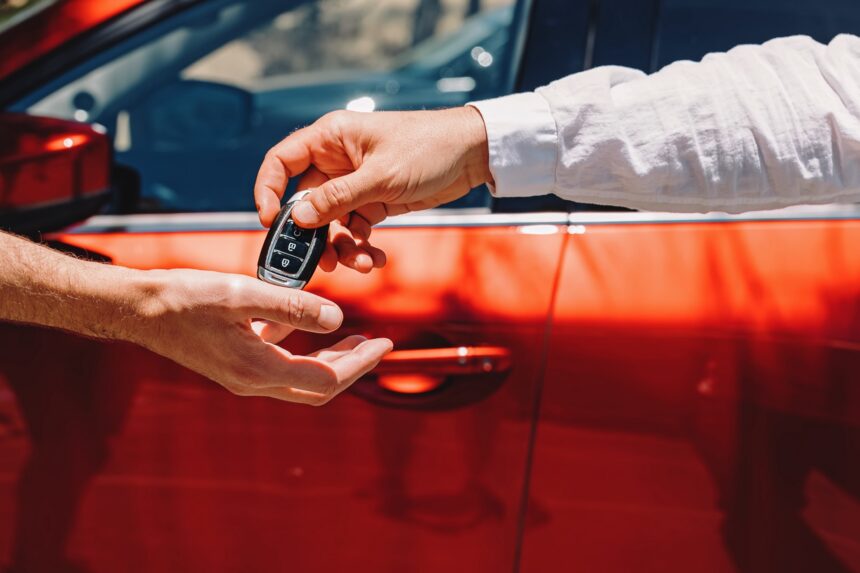Selling a car quickly can be a daunting task, but there are several strategies and tips that can help you get that car out of your driveway in no time. Whether you need some extra cash, are looking to upgrade to a new car, or simply have a car that you no longer drive, there are ways to sell your car fast.
The first step in selling your car quickly is to get it ready for sale. This includes cleaning out the car, taking good pictures for posting, and making sure you have all the necessary paperwork in order. Cleaning out your car and making it presentable is important, as it will help attract potential buyers. Taking good pictures of your car will also help generate interest from buyers, so be sure to highlight the best features of your car.
Before setting an asking price for your car, do some research to determine a fair value. Compare your car to others like it for sale in your area, and use online tools to get an estimate of what your car is worth. Setting a realistic asking price will help your car stand out from the competition and attract potential buyers.
Once you have set an asking price, be prepared for price negotiations. Most buyers will be looking to haggle, so be flexible and willing to negotiate to ensure a fast sale.
When it comes to deciding how to sell your car, there are a few options to consider. You can trade your car in at a dealership, sell it privately, use an Instant Cash Offer program, or donate it to a charitable organization. Each option has its pros and cons, so consider what is most important to you in the selling process.
In conclusion, selling a car fast may require some compromises, but with the right preparation and strategy, you can get that car out of your driveway in no time. Whether you choose to trade it in, sell it privately, use an ICO program, or donate it, there are options available to help you sell your car quickly and efficiently. Selling a car can be a daunting task, especially if you’re looking to do it quickly. However, there are several steps you can take to ensure a fast and easy sale. One option to consider is donating your car to charity. Not only does this help a good cause, but it can also provide you with a tax deduction. Just make sure the charity you choose qualifies for tax-deductible contributions and be sure to keep your receipt for proof.
If you decide to sell your car privately, there are a few tips to keep in mind. First, make sure you have all the necessary paperwork ready to go. This includes the car’s title, maintenance records, and any other required sale paperwork for your state. Be prepared to remove the license plates and notify your insurance company once the sale is complete.
When it comes to finding a buyer, consider reaching out to your network of friends and family. Word of mouth can be a powerful tool in finding a quick sale. You can also use social media channels to spread the word about your car. Screen potential buyers carefully and be prepared for pre-purchase inspections. Only accept payment in the form of a cashier’s check to avoid any potential issues.
If you’re looking to get the most out of selling your car, consider what your priorities are. If you want the most money possible, be prepared for a longer selling process. If you’re looking for a quick sale with minimal effort, consider pricing your car slightly lower to attract more buyers.
Ultimately, selling a car quickly comes down to preparation and communication. Make sure you have all the necessary paperwork in order, be available for potential buyers to view the car, and be honest about the car’s condition. By following these tips, you can sell your car fast and with minimal hassle. New Study Finds Link Between Social Media Use and Mental Health
A new study conducted by researchers at the University of California, Berkeley has found a significant link between social media use and mental health. The study, which was published in the Journal of Psychological Science, surveyed over 1,000 participants and analyzed their social media habits and mental well-being.
The researchers found that individuals who spent more time on social media reported higher levels of anxiety, depression, and loneliness. In particular, those who used social media to compare themselves to others or seek validation through likes and comments were more likely to experience negative mental health outcomes.
The study also found that the negative effects of social media use were more pronounced in younger individuals, particularly teenagers and young adults. This is concerning, as this demographic is already at a higher risk for mental health issues.
The researchers suggest that the constant exposure to idealized versions of others’ lives on social media can lead to feelings of inadequacy and low self-esteem. Additionally, the pressure to maintain a curated online persona can be exhausting and result in increased stress and anxiety.
It is important to note that not all social media use is harmful. The researchers found that individuals who used social media to connect with friends and family in a meaningful way reported higher levels of well-being. This suggests that the quality of social media interactions, rather than the quantity, plays a significant role in determining its impact on mental health.
In light of these findings, the researchers recommend that individuals limit their time on social media and be mindful of how it affects their mental well-being. They also suggest engaging in offline activities that promote positive self-esteem and social connections, such as exercise, hobbies, and spending time with loved ones.
Overall, this study highlights the need for a more balanced approach to social media use. While it can be a valuable tool for staying connected and informed, it is important to be aware of its potential negative effects on mental health and take steps to mitigate them. By prioritizing meaningful interactions and self-care, individuals can use social media in a way that enhances, rather than detracts from, their overall well-being.







